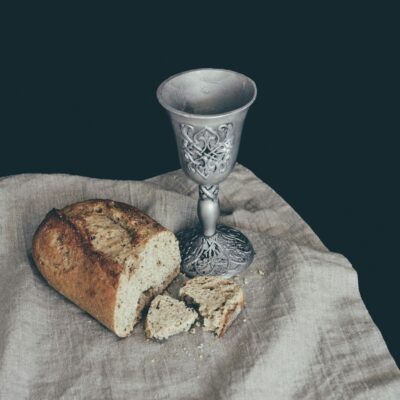This article is part of a series. To read the whole series, click here.
The doctrine of the Lord’s Supper invites believers to explore its significance within the framework of the sacraments. The Westminster Confession of Faith, Chapter 27, Section 1, defines sacraments as “holy signs and seals of the covenant of grace, immediately instituted by God to represent Christ and His benefits, and to confirm our interest in Him.” Sacraments also distinguish the church from the world and solemnly engage believers in service to God through Christ, according to His Word.
The terms “signs” and “seals” are central to this definition. A sign points to something beyond itself, like a road sign indicating a destination without being that place. In the Lord’s Supper, the bread and wine point to Christ’s body and blood, symbolizing His redemptive work. A seal is an official mark of authenticity, akin to a king’s royal stamp in ancient times. The Lord’s Supper seals God’s promises of salvation, spiritual growth, and eternal life, marking believers as His covenant people and affirming the certainty of His grace.
Sacraments are divine institutions, representing Christ’s atoning work, strengthening faith, and visibly setting apart the church as a covenant community. The Lord’s Supper, as a sacrament, is a means of grace that nourishes faith and deepens communion with God and His people.
In Reformed theology, sacraments are sometimes called “ordinances,” emphasizing their divine institution. The term “sacrament” derives from the Latin sacramentum, originally meaning an oath or pledge, such as a soldier’s vow of loyalty. Early Christian writers, notably Tertullian (c. 160–225 CE), adapted sacramentum to describe sacred rites like baptism, using it to signify a visible commitment to faith. In contrast, the Eastern Orthodox Church uses “mysterion” (Greek for mystery), highlighting the spiritual depth of these acts. This linguistic difference reflects Western theology’s legal and structural tone versus Eastern theology’s philosophical approach.
The Westminster Confession outlines key characteristics of sacraments: they are perpetual in the church, directly commanded by Christ, and Christocentric, visually displaying His promises. Reformed theology recognizes only two sacraments—baptism and the Lord’s Supper—as these alone are explicitly instituted by Christ in Scripture. This contrasts with the Roman Catholic tradition, which acknowledges seven sacraments, including marriage, ordination, and last rites. The Reformed view rejects these as sacraments because they are neither instituted by Christ nor found in God’s Word, the ultimate authority.
The Lord’s Supper, as a sign and seal, offers believers a tangible encounter with Christ’s promises. It points to His sacrifice, authenticates God’s covenant, and strengthens the church’s identity as His body. This foundational understanding prepares us to explore the scriptural basis, historical perspectives, and practical implications of the Lord’s Supper in Christian worship.
This is the first in a series on the Lord’s Supper. The next article will explore its scriptural foundation in 1 Corinthians 11, focusing on its corporate nature and spiritual significance.



